Deinfluencers Are Sharing The Things That People Should Stop Buying, And I'm Absolutely Loving It
I finally had my first super viral video — and it's about how annoying and unsustainable trendy cups are.
My video is part of the deinfluencing trend, which started as people pushing back AGAINST buying things.

The Dungeon Run / Via giphy.com
Trends move at hyper speed on TikTok, where clothes, cups, and even slang are cool for shorter and shorter periods of time.
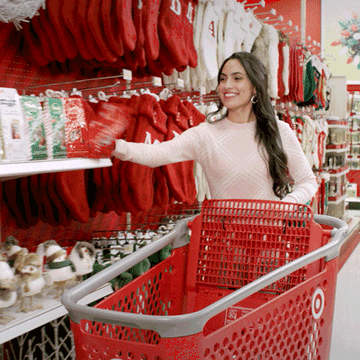
Target / Via giphy.com
TikTok has become a breeding ground for overconsumption, which many of the deinfluencer videos point out. And brands are diving in headfirst. A 2022 study found that in Q2 2022, direct to consumer brands increased advertising spending on TikTok by more than $30 million.
The hashtag #tiktokmademebuyit has over 44.3 billion views, and shopping hauls (where people show off the multiple items they bought on one shopping trip) are a key part of TikTok culture.
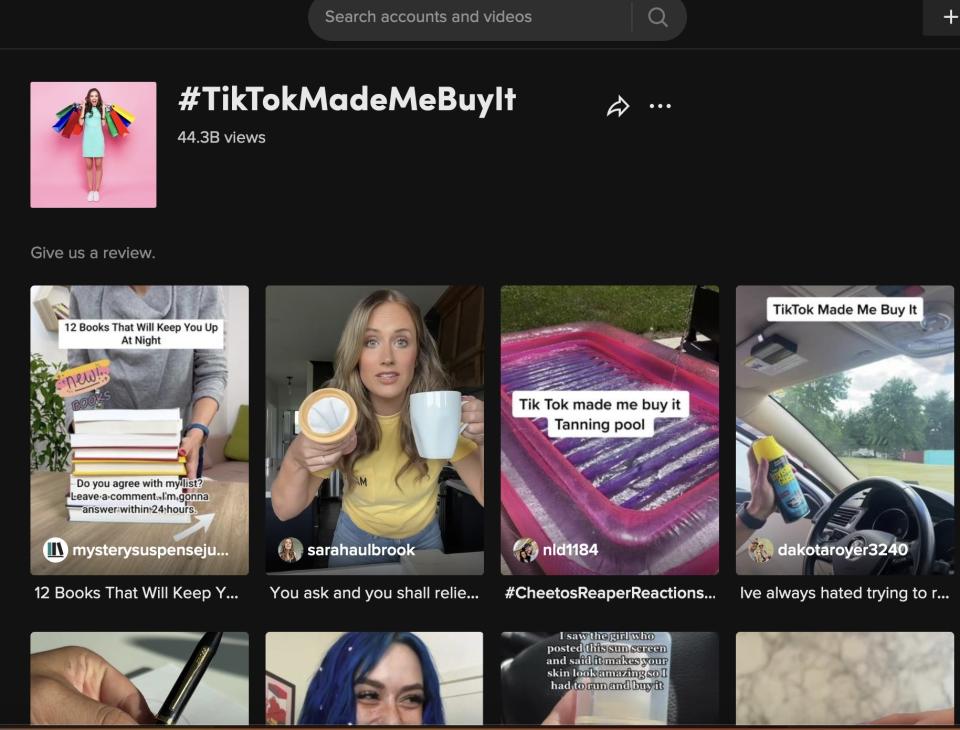
This constant display of overconsumption is bothering more and more people, as comments on my video clearly showed.
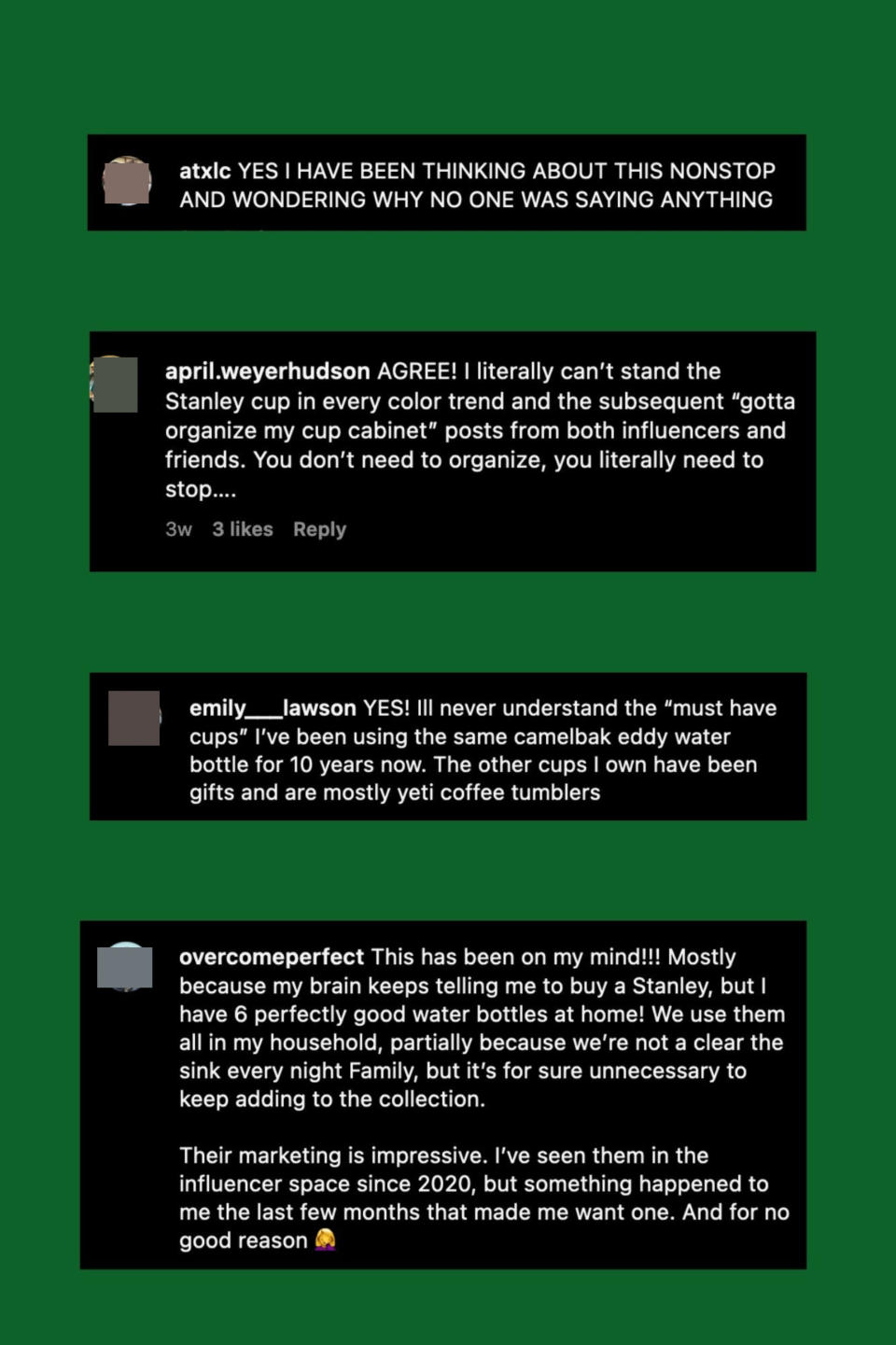
Sage Lenier, founder of Sustainable & Just Future, a nonprofit focused on youth-led environmental education, thinks that deinfluencing can stress how important environmental action really is.

Golden Freckles / Via giphy.com
Sage told BuzzFeed, "When we look at industries like fashion or furniture or electronics, all industries with massive environmental impacts, that impact is largely a result of cumulative consumer choices. Especially for those of us living in western countries, like the United States, where the average person can have an environmental impact five times larger than is sustainable, we have not only a massive ability but also responsibility to create change within the system. If every American decided to stop consuming fast fashion and buying off of Amazon, huge portions of the extractive consumer-capitalist economy would come to a screeching halt. So, I do think we all have a moral obligation to consume less."
Sage tackles big topics with her approach to deinfluencing, sharing how the scary reality of climate change has made her less of a consumer.
@sagelenier #stitch with @devonrule not to mention that buying new things just contributes to climate change even more #deinfluencing
♬ Chopin Nocturne No. 2 Piano Mono - moshimo sound design
Which is resonating with her followers:

BBC America / Via giphy.com
"EXACTLY ✋😩 I’ve got money but I will be getting that free table & chairs off Marketplace… not to mention OVERCONSUMPTION is rampant," commented Erica_is_Well on the post.
And Jessica, a sustainability creator from ImpactForGood, has also seen viral success from her deinfluencing videos.
@impactforgood_ Declutter your home & then learn to buy less. It will change your life #deinfluence #deinfluencing #deinfluencingmakeup #deinfluencingproducts #minimalism #minimalist #sustainabilitytiktok #imperfectsustainability #sustainablelifestyle #eco #ecofriendly deinfluence deinfluencing Skincare routine Make up routine
♬ original sound - Jess - Sustainability
With almost 57,000 likes and over 700 comments, Jess struck a nerve. She says the response has largely been positive.

Brimestone / Via giphy.com
"So many people have felt stuck in the hamster wheel of overconsumption that they feel relieved to see someone who roots against it. Many people were engaged in the conversation about how TikTok pushes overconsumption, and how they feel it's time to learn how to buy less. Many people saw it as a wake-up call," Jessica told BuzzFeed.
We've also seen an uptick in "anti-haul" videos on YouTube, where creators share things they don't want to buy anymore of.
Shopping content is all over TikTok, but with 61 million views, #antihaul shows that there is an appetite for content that moves beyond consumption.
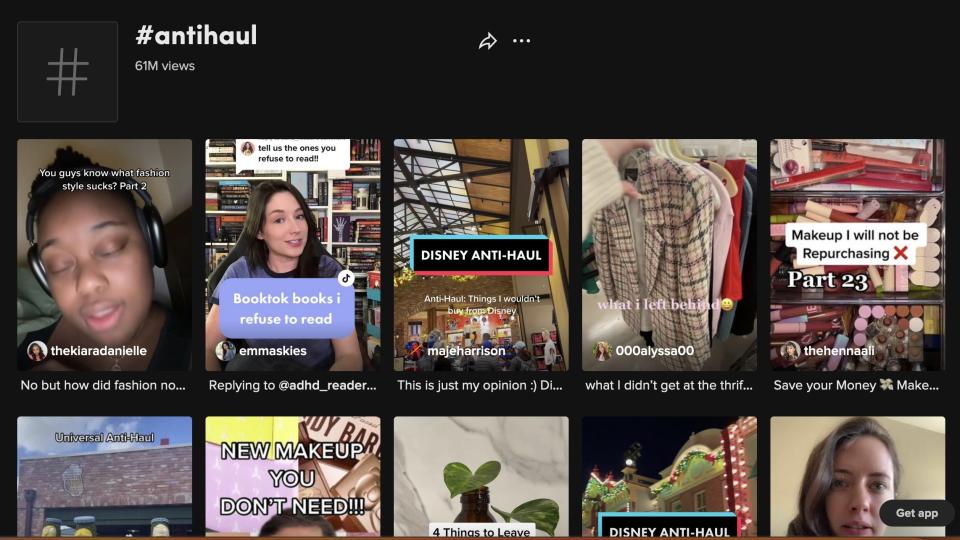
Both Sage and Jessica think that deinfluencing is waking new people up to the important conversation around climate change, consumption, and equality.
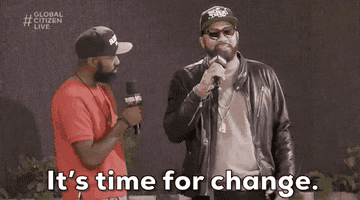
Global Citizen / Via giphy.com
In Sage's comments, people often fight about the best way to handle large scale problems like these. But she focuses on the people who are new to the conversation, telling BuzzFeed she holds out "hope for that small third group who will watch a video and go, 'huh, I hadn't thought about that.' Those are the most gratifying people to engage because you know that going forward they might actually change their behaviors or do things differently or get involved in some way."
Jessica feels the same — while deinfluencing might not stand the test of time, she does think it's having a positive impact on many.
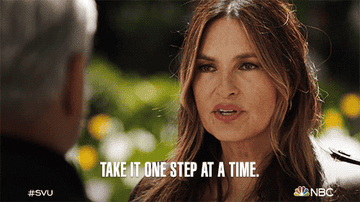
NBC / Via giphy.com
"Unfortunately, like the rest of TikTok's many trends, I think this is a blip in time. But that doesn't mean that thousands of people won't stay engaged in this conversation. So, while I don't think the whole world is waking up to the effects of overconsumption on the planet, their wallets, and workers around the world, I do think more and more people are engaging in this conversation, and to me that's inspiring," she told BuzzFeed.

